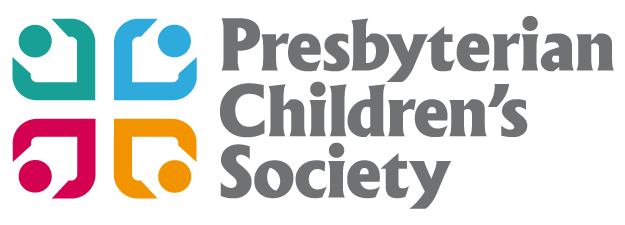Jesus, The Presbyterian Children’s Society and the redeeming of Welfare
“Suppose a brother or sister is without clothes and daily food. If one of you says to him, “Go, I wish you well; keep warm and well fed,” but does nothing about his physical needs, what good is it? In the same way, faith by itself, if it is not accompanied by action, is dead.’ (James 2: 15-17)
Where do you stand on the welfare debate? Paul Gray, Executive Secretary of the Presbyterian Children’s Society, has been helping to address situations of genuine need for the last 30 years. Opinions on the welfare debate are wide ranging but what view should we, as Christians, take?
As others see it
The word welfare has had a chequered history. Welfare has been defined in terms of happiness, prosperity and well-being but a second definition of welfare is - the financial and other assistance given to people. It is this type of welfare that is often regarded as a blight rather than a blessing, seen by some as a ladle, begrudgingly dolloping gruel into the tin bowl of the underserving. This Dickensian caricature has been accompanied by a more modern caricature of angular faced, assertive welfare recipients not just asking for more but now demanding it. It is an unhelpful picture of welfare. As Christians we need to redeem the word welfare enabling some of the inclusivity and positivity in the former definition to work its way into the latter. Disraeli once said ‘‘power has only one duty – to secure the social welfare of the people.’’ We should look at how Jesus deals with the welfare of people and examine how this might influence our attitudes and actions.
As Jesus sees it
Let’s take tax collectors, for instance. Generally unpopular in Jesus time, He nonetheless shared a table with the tax collector Zacchaeus, He shared His message and a changed Zacchaeus shared out his ill-gotten gains, Jesus initiating physical and spiritual transformation.
In another memorable encounter a woman who had lived a ‘sinful life’ poured expensive perfume over Jesus’ feet and then dried it with her hair; this action was beautiful, loving and unexpected and His acceptance of her gift was no doubt life-changing.
A Samaritan woman who encountered Jesus at a well, arrived with a pitcher but was well beyond the pale, with a relationship tally of five previous husbands and a current lover. However, she received the living water Jesus offered and her human condition was changed forever.
What does all this tell us about Jesus and the welfare of people? He certainly identifies with those on the margins and distances Himself from those who would render the lives of the suffering insufferable. Whilst the Pharisees vocally raised their objections, Jesus raised the dead and raised the lowly to a higher place.
As we should see it
How does Jesus life and witness impact our thinking on people and welfare? When members of our Church support the work of organisations such as The Presbyterian Children’s Society they are showing concern for the material and spiritual welfare of people and embodying Jesus’ approach to those in need. The Society’s approach to welfare, developed 150 years ago was also ‘counter-cultural’ at that time. The Society’s grants were tokens of grace, a contrast to what was, in many instances, reluctantly dispensed State provision. The Society’s open hearted and biblical attitude has continued to this day. We believe giving to others is important.
Marilynne Robinson referring to the Poor Law observes ‘‘The meanness of the system was rationalised as moral supervision of the very many by the very few, wealth being the single qualification of the few. We see here the fate of the greatest of the theological virtues when it falls into mammon’s clutches.’’ For the Society in the twenty-first century we see fault lines develop, the State’s welfare provision is progressively contentious, the Society’s largely accepted as one part of the Presbyterian expression of helping those within our communities.
What about our attitudes to welfare? Firstly, it should be clear that God wants us to be concerned with the physical and material, as well as the spiritual needs of others. We are all in need in different ways and money is only one measure of need. In the community of God there is no ‘us’ and ‘them’ there is only ‘us’.
Secondly, let’s examine our attitudes towards welfare recipients. We need to place every story within its context, seeing the person or persons behind each story.
Thirdly, let’s help people to thrive not merely to survive. R H Tawney said ‘‘If a man has important work, and enough leisure and income to enable him to do it properly he is in possession of as much happiness as is good for any of the children of Adam.’’ Work should be productive, fairly paid and reasonably secure. Rather than ‘workfare’ there should be fair work and appropriate welfare for those unable to work.
Finally, we should be advocates of fair welfare of all. Paul in Second Corinthians writes ‘‘At the present time your plenty will supply what they need, so that in turn their plenty will supply what you need. Then there will be equality as it is written.“ He who gathered much did not have too much, and he who gathered little did not have too little.” ”
We can redeem the word welfare by approaching it with an open mind. We can also, with an open heart, support Presbyterian children and their families through the Presbyterian Children’s Society, sharing His grace and welfare with all within our Presbyterian Community.
